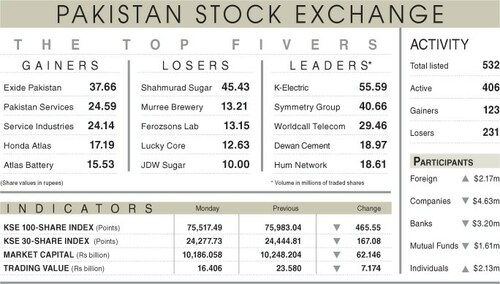Whether it be access to export markets or investments from fast growing regional economies, Pakistan is way behind in reaping the benefits of regional cooperation despite several existing regional and bilateral trade arrangements. The gains from free or preferential trade agreements are fairly limited.
Three more FTAs with Iran, Turkey and Thailand are expected to be finalised by the end of 2016. While the proposed agreements may open up export opportunities, the manufacturing sector is facing structural problems that make it unable to produce enough trade surpluses.
Several issues like restricted coverage of the trade agreements, poor physical infrastructure, inadequate trade facilitation and trust deficit with some regional trading partners have also minimised the relevance of these pacts.
Many trade experts believe that the low level of intra-regional trade has also held back both domestic and foreign investment.
In the year 2012, the government approved a plan for boosting regional trade and economic connectivity. The plan was based on the fact that Pakistan is located at the crossroads of Central, South and Southwest Asia — a strategic location with great potential for becoming a regional hub of economic activity. After a lapse of more than four years, no visible movement is being seen in this direction.
Pakistan joined the South Asian Free Trade Agreement (Safta) in 2006. The mutual distrust between Pakistan and India is a major barrier to speedy regional cooperation. The removal of obstacles to trade, especially non-tariff barriers, and prospects for further liberalisation seem dim.
The Safta also excludes services and investment which could spur capital flows within the region. This is at a time when, but for China, inflows into Pakistan from outside the region are generally declining.
Commerce Minister Eng. Khurram Dastagir Khan says Pakistan wants the elimination of non-tariff barriers facing trade transactions in South Asia to provide an impetus for intra-region trade. Only five per cent of the total foreign trade of South Asian countries is among its members.
Pakistan has 3.1pc trade with the whole region in which India has a major share of 2.4pc in Pakistani imports and 0.76pc in exports. Bangladesh is the second biggest regional market for Pakistani goods.
Despite a lapse of 12 years, Pakistan is yet to pursue the Gulf Cooperation Council (GCC) to hold the third round of talks for an FTA, to remove existing tariff and non-tariff barriers to trade, attract foreign direct investment and, promote joint ventures. A major issue in economic cooperation with these countries is Pakistan’s unaddressed adverse balance of trade.
A PTA was signed with the D-8 group — comprising Bangladesh, Egypt, Indonesia, Iran, Malaysia, Nigeria, Pakistan and Turkey — on May 14, 2006, but with no results so far.
Pakistan’s share with preferential trade agreement partners is in the range of 30pc.
The five Central Asian Republics are another potential bloc for Pakistani goods and services. No serious effort is being made to pursue a preferential trade arrangement with these countries. In fact Pakistan is losing the Afghan market because of recent political developments.
The agreements with China, Malaysia, Sri Lanka, Indonesia, Iran, and Mauritius have not fared well as Pakistan’s trade balance has deteriorated further following the signing of these pacts.
“We have decided to review all existing preferential trade pacts through which Pakistan conducts its trade on preferable terms with other countries on a bilateral basis”, an official of the commerce ministry said. Pakistan is currently in the process of negotiating FTAs with Thailand, Turkey, South Korea and Iran, which will widen trading opportunities for Pakistani businessmen, the official claimed.
Published in Dawn, Business & Finance weekly, August 8th, 2016














































